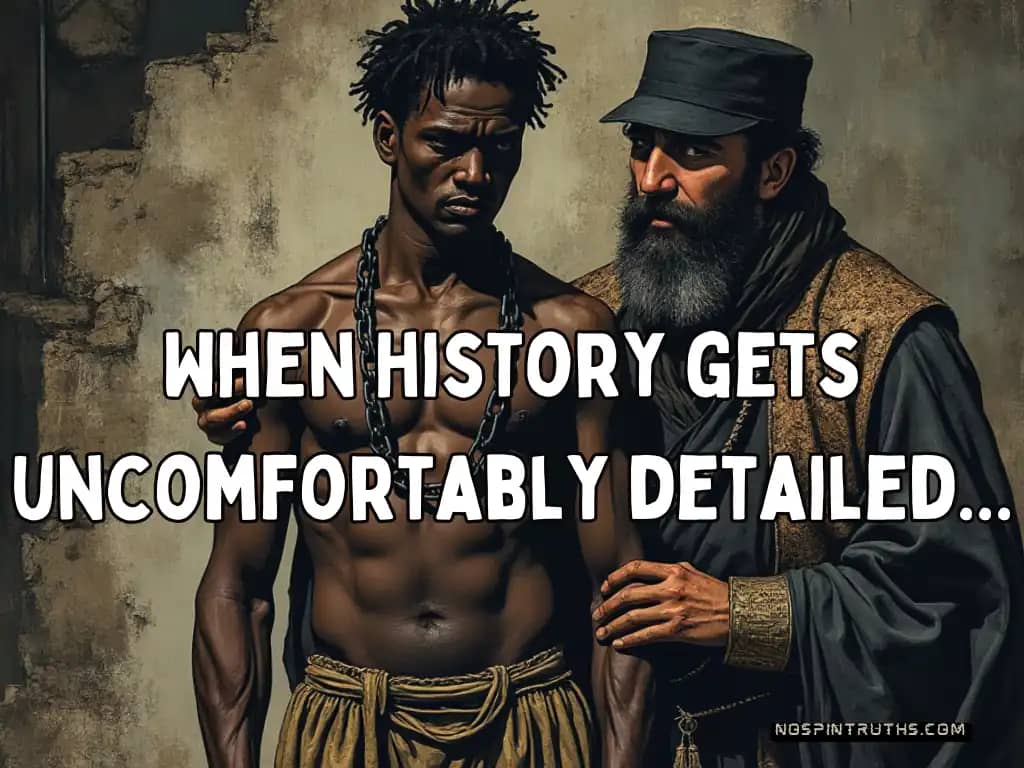“Nothing is so wonderful as to be able to serve God freely, for in that freedom lies our salvation and the true essence of our humanity.”
– Saint Basil the Great
The Connection Between Faith, Freedom, and Scripture
Religious Foundations of Liberty
The relationship between faith and freedom is underscored by the belief in the intrinsic dignity of every individual, a concept central to both the Magna Carta and the U.S. Constitution. This idea, rooted in scripture, reflects a biblical understanding of humanity. Genesis 1:27 (Septuagint) teaches, “God created man in His own image,” affirming that every person is endowed with worth and dignity by God. This foundational principle of individual rights, derived from divine creation, transcends human authority.
The First Amendment, which protects religious freedom, also echoes the biblical value of liberty. Isaiah 61:1 (Codex Sinaiticus) proclaims, “The Spirit of the Lord is upon me… to proclaim liberty to the captives.” This verse reflects the role of faith in breaking the chains of oppression and fostering a society where individuals can freely worship and live according to their beliefs.
Faith as a Catalyst for Liberty and Justice
Throughout history, faith has sparked movements for justice. Exodus 3:7-8 (Septuagint) reveals God’s concern for the oppressed, saying, “I have seen the affliction of my people… and I have come down to deliver them.” Faith-driven figures like abolitionists and civil rights leaders, inspired by scriptures, sought to liberate those bound by injustice. In Micah 6:8 (Codex Sinaiticus), the prophet reminds believers to “do justice, love mercy, and walk humbly with God,” demonstrating the intrinsic link between faith and the pursuit of justice for all.
Uncovering the Complex Truth of the Slave Trade
Scriptural Views on Servitude
While scripture acknowledges forms of servitude, it imposes moral limitations. Leviticus 25:39-40 (Septuagint) calls for humane treatment, highlighting the stark contrast between biblical principles and the grim reality for indentured servants and penal laborers in the 17th and 18th centuries. These systems, though framed as temporary, often equaled the horrors of chattel slavery.
Indentured and penal laborers were routinely deceived, with promises of freedom rarely fulfilled. Their labor contracts were often a lie, masking what amounted to lifelong servitude. Conditions were brutal, marked by extreme mistreatment, malnourishment, and dangerous work environments. Like chattel slaves, they had no real autonomy. Many succumbed to disease and death before even completing their terms, and minor infractions led to sentence extensions, making true freedom unattainable for most. This exploitation paralleled chattel slavery’s cruelty, reducing these individuals to commodities.
Deuteronomy 15:12-14 (Septuagint) stresses the moral responsibility of freeing servants and providing for them, reflecting the deep chasm between the ideal of justice and the inhuman practices imposed on these individuals.
Types of Slavery: Biblical Parallels
- Indentured Servants: Though supposedly temporary, indentured servitude led to severe abuse and endless labor. Scripturally, Deuteronomy 15:12-14 commands release and care for servants, a sharp contrast to the brutal reality, where freedom was denied, and suffering was rampant.
- Penal Laborers: Similar to indentured servants, penal laborers faced inhumane treatment under a system of exploitation and coercion. Isaiah 58:6 (Codex Sinaiticus) denounces oppression, calling for the “breaking of every yoke,” a demand for justice that was ignored as penal laborers endured harsh, unjust sentences.
- Chattel Slavery: The horror of chattel slavery, where people were treated as property for life, mirrors the inhuman conditions of indentured and penal laborers. Exodus 21:16 (Septuagint) condemns human trafficking, stating, “He who steals a man and sells him… shall surely be put to death.” This reflects the moral outrage that ought to have applied universally to all forms of slavery, yet in practice, all these systems were allowed to continue.
By emphasizing the grim realities of indentured and penal labor, it becomes clear that these forms of servitude were no less exploitative or dehumanizing than chattel slavery. They all violated the biblical principles of justice, mercy, and human dignity, as articulated in scripture.
Participation in the Slave Trade: A Biblical Lens
While a significant portion of those capturing and selling slaves were of African descent, scripture clearly holds all people accountable for their actions. Proverbs 14:31 (Septuagint) says, “He who oppresses the poor taunts his Maker.” African slave traders often sold their own people or neighboring tribes for profit, disregarding the humanity of their captives for personal gain. Despite their shared ethnicity, their role in perpetuating this cruel system is undeniable.
Equally, Jewish slave traders, though fewer due to population and access, were complicit in this evil. Leviticus 19:33-34 (Septuagint) commands, “When a stranger sojourns with you… you shall love him as yourself.” This moral principle was violated when Jewish traders participated in the buying and selling of human lives, particularly in regions like the Caribbean and South America. Jewish traders often played an intermediary role, financing and facilitating the slave trade for profit.
Both African and Jewish traders, like their European counterparts, ignored scripture’s teachings in their pursuit of wealth. Isaiah 58:6 (Codex Sinaiticus) calls for the breaking of unjust yokes, yet all groups involved in the slave trade perpetuated unimaginable suffering. Despite different levels of involvement, all bore responsibility for the misery inflicted on countless men, women, and children.
These traders, regardless of ethnicity or background, were driven by greed, trampling the scriptural commandment to treat others with dignity and compassion. Romans 3:23 (Codex Sinaiticus) reminds us that “all have sinned and fall short of the glory of God,” emphasizing that exploitation and oppression by any group violate fundamental biblical principles.
Understanding the Realities Behind the Narratives
The simplified narratives often presented about the slave trade fail to capture its full complexity. Blame cannot be placed solely on one group, as scriptures like Romans 3:23 (Codex Sinaiticus) remind us that “all have sinned and fall short of the glory of God.” Recognizing the involvement of various groups, including Europeans, Africans, and Jewish traders, allows for a more truthful understanding of history and the role of human failings.
Ephesians 6:9 (Codex Sinaiticus) teaches, “Masters, do the same to them, and stop your threatening, knowing that he who is both their Master and yours is in heaven.” This scripture calls for fair treatment, reflecting the biblical principle of accountability for all who wield power over others.
Overview: Faith, Freedom, and Justice
In acknowledging the full history of slavery, we not only honor the suffering of those who were enslaved but also affirm the importance of striving for justice, as called for by our faith. Galatians 5:1 (Codex Sinaiticus) reminds us, “For freedom Christ has set us free; stand firm therefore, and do not submit again to a yoke of slavery.”
Faith is a force that drives believers to challenge oppression and seek true freedom for all people. By facing the complexities of history and rooting our actions in scripture, we can work toward a society that values both justice and freedom for every individual.
Comparing Perspectives on the Topic of Slavery
Traditionalist vs. Woke Agenda Perspective
Traditionalist: Focuses on shared responsibility in slavery’s history, acknowledging the roles of all involved, including Europeans, Africans, and Jewish traders. Emphasizes personal accountability and warns against divisive narratives, promoting unity and equal opportunity.
Woke Agenda: Emphasizes European colonizers’ role in slavery, highlighting systemic injustice and racial inequality. Advocates for addressing historical wrongs through reparations and policy changes, focusing on collective guilt and social justice.
Republican vs. Democrat Perspective
Republican: Emphasizes personal accountability, shared responsibility in the history of slavery, and the importance of unity. Cautions against reparations and collective guilt, advocating for equal opportunities and focusing on individual freedom and merit-based success.
Democrat: Focuses on systemic injustice and the legacy of slavery, primarily highlighting European involvement. Advocates for reparations and policies aimed at addressing historical and racial inequalities, viewing collective action as necessary for social justice and equity.
Donald Trump vs. Kamala Harris Perspective
Donald Trump: Advocates for personal accountability and shared responsibility in the history of slavery. He opposes reparations, focusing on merit-based success, equal opportunity, and unity, warning against divisive narratives that promote collective guilt.
Kamala Harris: Focuses on addressing systemic injustice and the legacy of slavery. She supports policies aimed at reducing racial inequalities, including potential reparations, and emphasizes the importance of social justice and equity to rectify historical wrongs.
The Best Perspectives for a Happy and Functioning Society
- Traditionalist: It promotes shared responsibility, personal accountability, and unity by acknowledging all roles in slavery’s history. It avoids divisive narratives and focuses on creating equal opportunities for all.
- Republican: Emphasizes personal freedom, merit-based success, and unity while cautioning against collective guilt or reparations. This fosters a society where individuals take responsibility for their own progress.
- Donald Trump: Advocates for merit-based opportunities, unity, and personal responsibility, opposing reparations to avoid further division. This perspective encourages self-reliance and shared responsibility.
Why These Perspectives Align with The Scriptures:
- Traditionalist: Emphasizes shared responsibility and unity, echoing Romans 3:23 (“all have sinned”), highlighting collective moral accountability. Micah 6:8 also calls for justice and humility, promoting equal opportunities without divisive narratives.
- Republican: Reflects Galatians 5:1 (“For freedom Christ has set us free”), emphasizing personal freedom and merit-based success. It aligns with the biblical principle of Isaiah 58:6, promoting self-reliance and breaking unjust yokes.
- Donald Trump: Advocates unity and accountability, resonating with Proverbs 14:31 (“He who oppresses the poor taunts his Maker”), focusing on shared responsibility and avoiding further division.
Conclusion:
In conclusion, the perspectives that emphasize shared responsibility, personal accountability, and unity best align with both biblical principles and the path to a harmonious society. By recognizing all roles in historical wrongs, focusing on merit-based success, and avoiding divisive narratives, we create a foundation of justice, freedom, and opportunity for all. Scripture calls for the breaking of unjust yokes, fostering compassion, and promoting individual growth. Through these values, we build a society rooted in dignity, mutual respect, and collective progress.


Leave a Reply